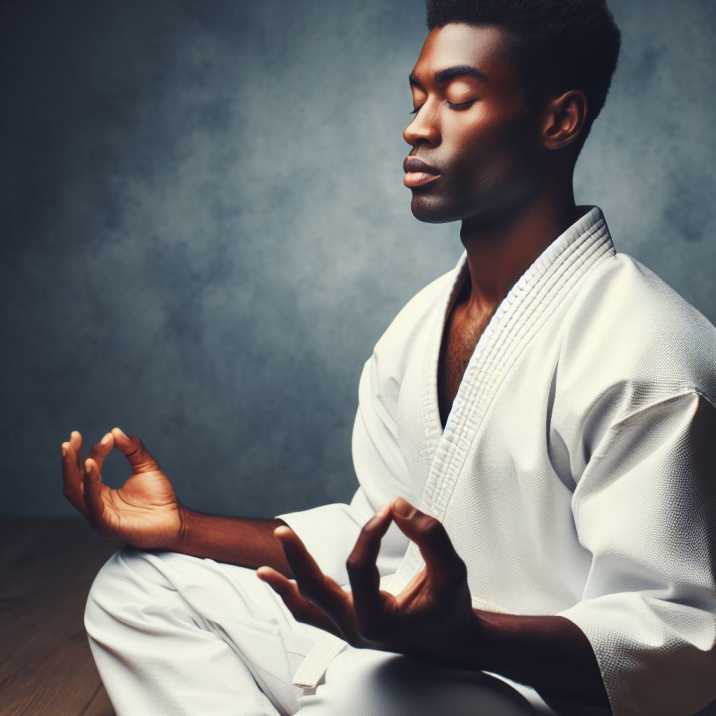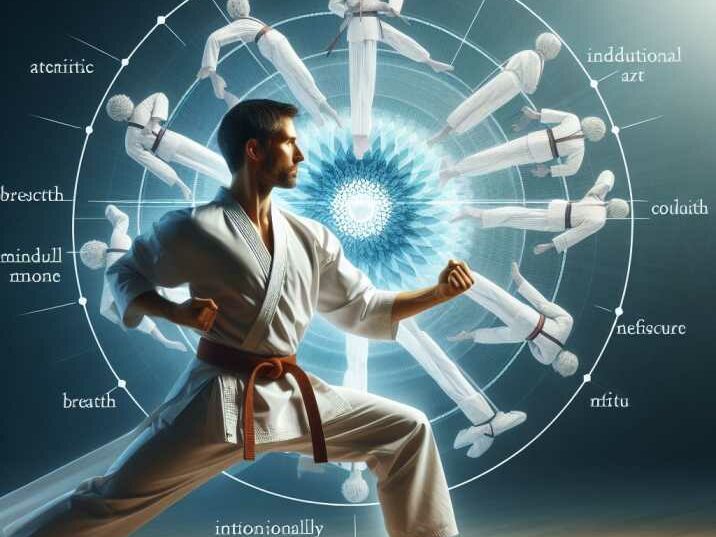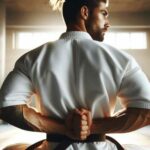Introduction:
Table of Contents
In the world of martial arts, Karate stands out as one of the most disciplined and revered practices. Its roots trace back to ancient Japan, where it was developed as a means of self-defense and self-improvement. While physical prowess is undoubtedly crucial in mastering Karate, there is another element that often goes unnoticed but holds immense importance – meditation in Karate. In this article, we will delve into the profound role that meditation plays in enhancing Karate practice, and how it contributes to the development of both mind and body.

The Connection Between Meditation and Karate:
Meditation has long been an integral component of traditional martial arts training, including Karate. At its core, Karate is not just about physical combat; it is a holistic discipline that seeks to cultivate mental focus, emotional balance, and spiritual growth. This is where meditation comes into play, serving as a powerful tool to align the practitioner’s mind, body, and spirit.
Understanding Meditation in Karate:
At its essence, meditation is the practice of training the mind to achieve a state of focused awareness and inner calm. In the context of Karate, meditation serves multiple purposes:
- Enhanced Concentration: One of the primary benefits of meditation in Karate is its ability to sharpen focus and concentration. Through regular meditation practice, practitioners learn to quiet the chatter of the mind and direct their attention fully to the present moment, crucial for executing precise techniques and reacting swiftly to opponents.
- Emotional Regulation: Karate practitioners often face high-pressure situations, whether in training or competition. Meditation equips them with the tools to manage stress, anxiety, and other emotions effectively. By cultivating a sense of inner calm and resilience, practitioners can navigate challenging circumstances with clarity and composure.
- Physical Alignment: In Karate, proper body alignment and posture are essential for executing techniques efficiently and preventing injury. Meditation encourages practitioners to develop awareness of their body mechanics and posture, facilitating optimal alignment and movement during training and sparring.
- Spiritual Growth: Beyond the physical and mental aspects, Karate is also a spiritual journey for many practitioners. Meditation provides a pathway for self-reflection, introspection, and connection to a deeper sense of purpose. It fosters qualities such as humility, discipline, and respect, which are fundamental principles in Karate philosophy.
Incorporating Meditation into Karate Practice:
Integrating meditation into Karate practice is not a separate endeavor but rather an inherent aspect of the training process. Here are some practical ways to incorporate meditation into your Karate routine:
- Begin and End Sessions with Meditation: Start each training session with a few minutes of quiet meditation to center your mind and focus your intentions. Likewise, conclude your practice with a brief meditation to reflect on your progress and cultivate gratitude.
- Mindful Movement: Approach your Karate techniques with mindfulness and intentionality. Pay attention to the sensations in your body as you perform each movement, and use your breath as an anchor to stay present in the moment.
- Visualization: Use meditation as a tool for mental rehearsal and visualization. Close your eyes and vividly imagine yourself executing techniques with precision and grace. This mental imagery can enhance your performance and build confidence.
- Breath Awareness: Incorporate breath awareness exercises into your Karate practice to synchronize your breath with your movements. Conscious breathing not only calms the mind but also promotes efficient energy management and stamina.
- Post-Training Reflection: Take time after each training session to reflect on your experiences and insights gained. Journaling can be a valuable practice to capture your thoughts and track your progress on your Karate journey.

Table of Information:
| Topic | Description |
|---|---|
| The Connection | Meditation’s role in aligning mind, body, and spirit in Karate practice |
| Understanding | How meditation enhances concentration, emotional regulation, physical alignment, and spiritual growth in Karate |
| Incorporating | Practical tips for integrating meditation into Karate training routine |
| Benefits | Enhanced focus, stress management, improved technique execution, and spiritual development |
| Conclusion | Summarizing the transformative impact of meditation on Karate practice |
Conclusion:
In the dynamic world of Karate, meditation serves as a steadfast anchor amidst the flurry of punches and kicks. Its transformative power extends far beyond physical technique, shaping practitioners into well-rounded martial artists with clarity of mind and depth of spirit. By embracing meditation as an integral part of Karate practice, practitioners unlock the full potential of their martial arts journey, embodying the principles of focus, discipline, and inner peace.
FAQs:
- Why is meditation important in Karate? Meditation enhances concentration, emotional regulation, and spiritual growth, crucial for mastering Karate techniques and principles.
- How does meditation benefit Karate practitioners? It improves focus, stress management, technique execution, and fosters a deeper connection to the martial arts journey.
- Can beginners incorporate meditation into their Karate practice? Absolutely! Beginners can start with simple mindfulness exercises and gradually integrate meditation into their training routine.
- How often should one meditate to see benefits in Karate practice? Consistency is key. Even a few minutes of daily meditation can yield noticeable improvements in focus, performance, and overall well-being.
- Is meditation solely for spiritual purposes in Karate? While meditation does have spiritual aspects, its benefits extend to mental, emotional, and physical realms, making it integral to holistic Karate practice.


